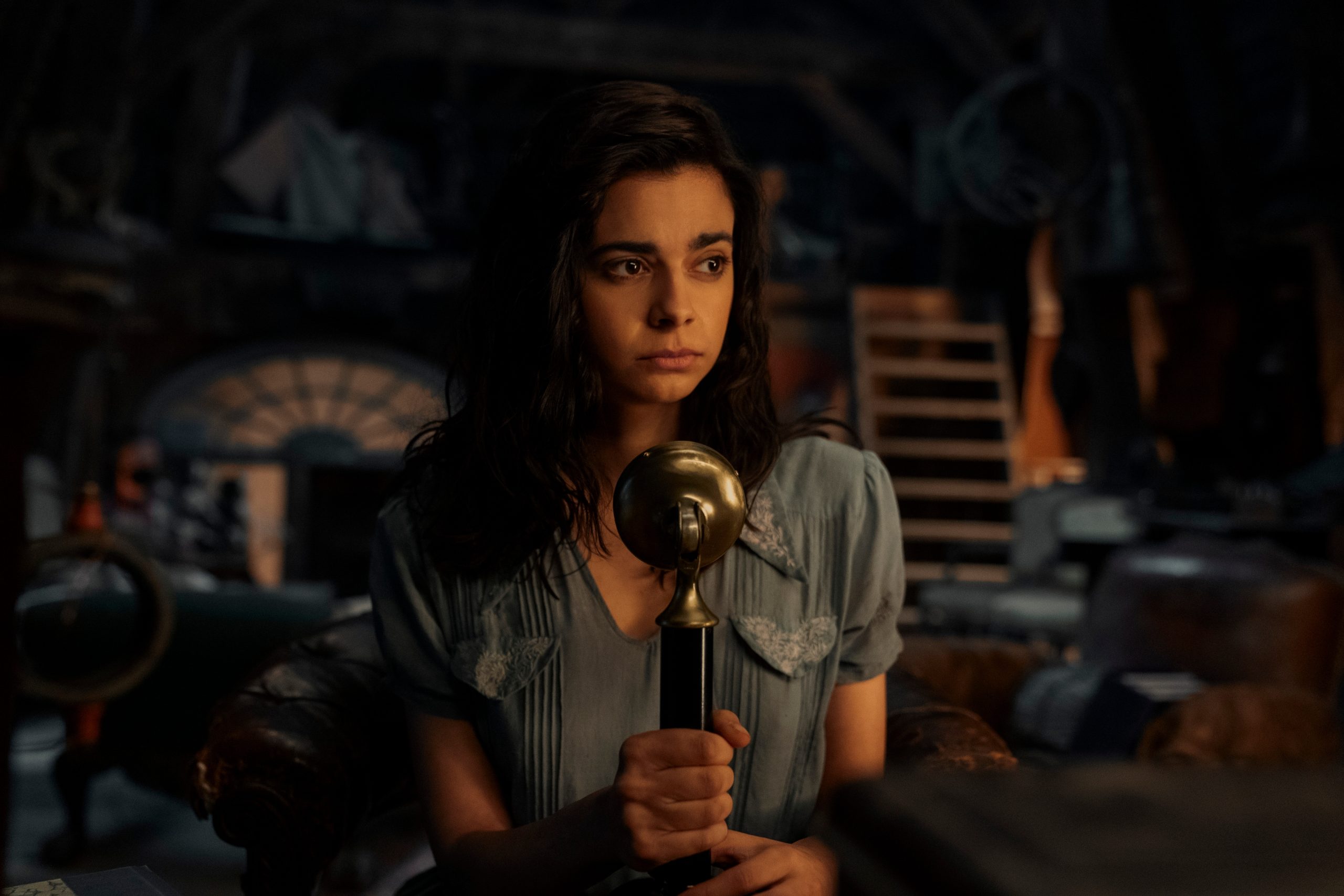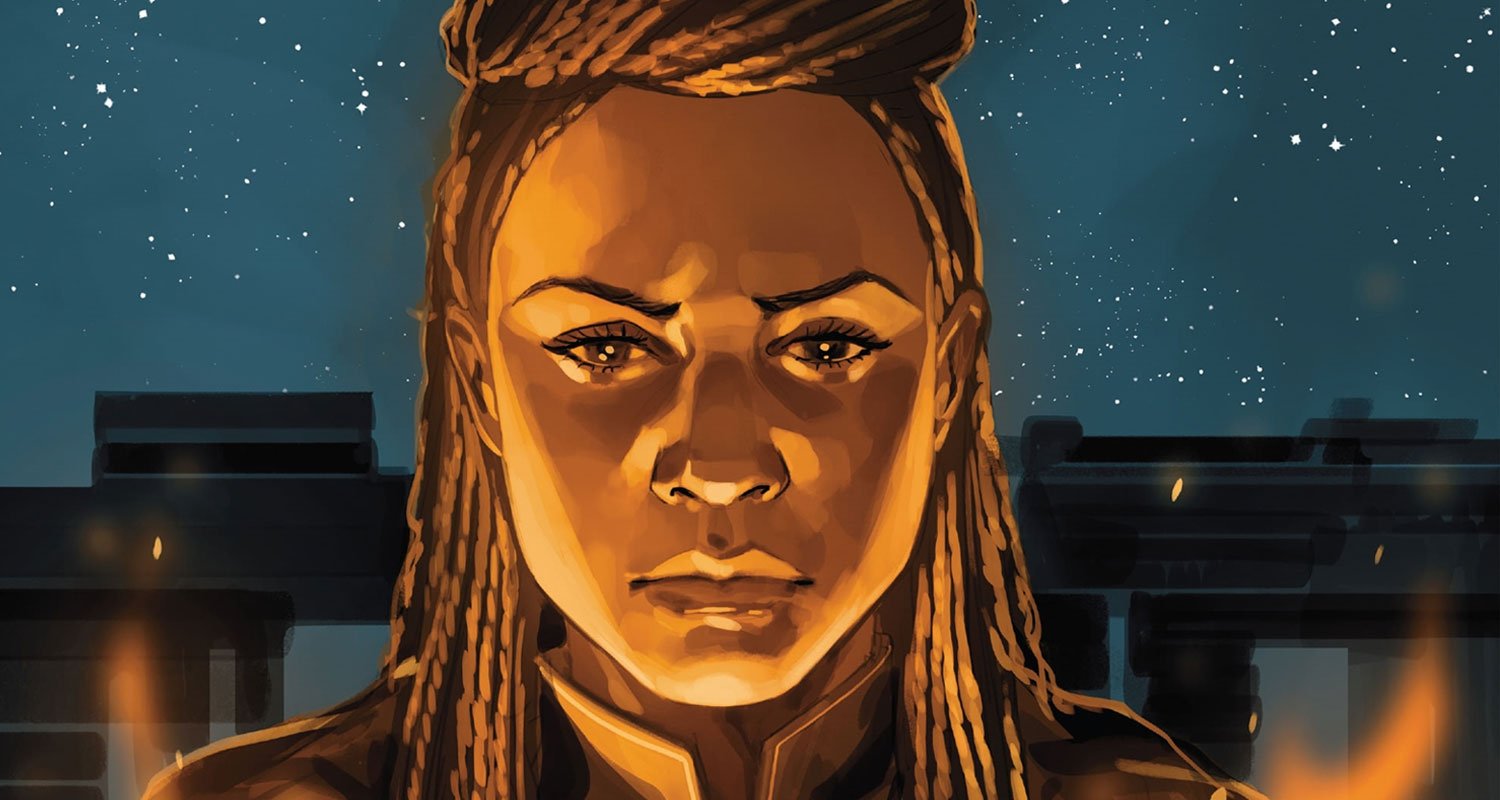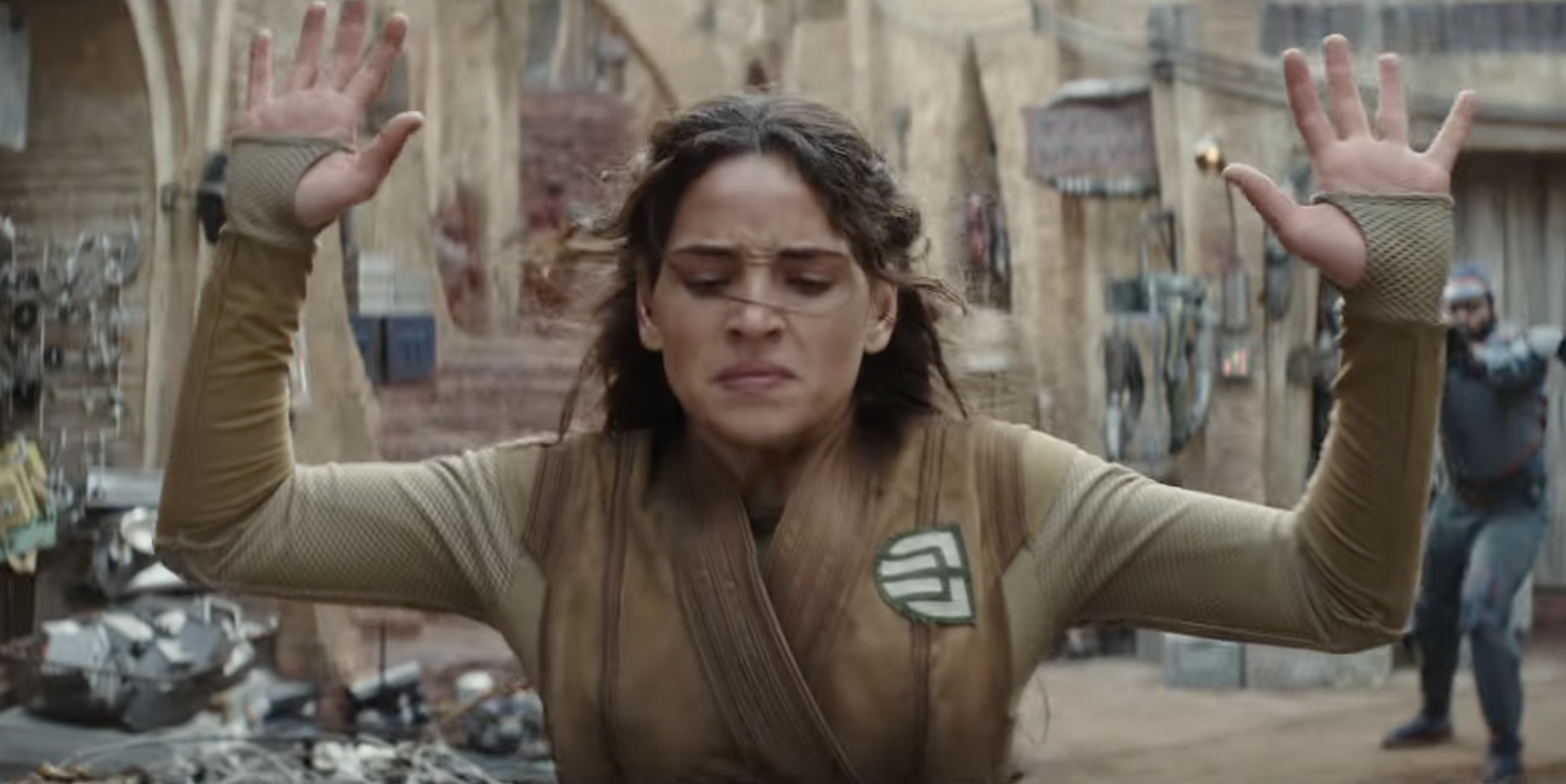‘All the Light We Cannot See’ Review: A Solid Miniseries Held Back by An Unnecessary McGuffin

All the Light We Cannot See. Aria Mia Loberti as Marie-Laure in episode 101 of All the Light We Cannot See. Cr. Katalin Vermes/Netflix © 2023
Based on the Pulitzer Prize-winning novel by Anthony Doerr, the new Netflix show All the Light We Cannot See is that type of miniseries that screams the source material was much better, even without having ever read it. After all, there’s something magical about picturing the characters and their settings in your head, as opposed to seeing them come to life through a de-saturated lens that captures the depressing-looking clothes and toned-down colors we’ve come to expect from period pieces. It’s a barrier of connection that not even James Newton Howard’s hauntingly beautiful score is able to sort — and that’s the key word here, connection. Everything in All the Light We Cannot See comes down to whether or not you’re able to relate to the themes that writer Steven Knight (Peaky Blinders) and director Shawn Levy (The Adam Project) are trying to convey. Well, I am pleased to say that it worked for me.
Set in 1944, in the final days of Nazi-occupied France, but also covering the past four hellish years for the small seaside town of St. Malo, and in particular, our main protagonists, spearheaded by Marie-Laure. She’s played by the stunning and fearless blind actress Aria Mia Loberti, and communicates through a clandestine and highly illegal radio station with the French resistance. She’s taken up the mantle of the Professor, a mysterious voice she used to listen to back in the day that taught her, and everyone willing to listen, everything from how to dream of a better future to how to actually build it. Her father, played by Mark Ruffalo, and with whom she shares a deep connection, is now missing (a mystery that, like many others, will be unraveled throughout the four episodes), and her microphone is the only way she can use to communicate with him, wherever he may be.
The main plot of the show, the McGuffin, is actually a famed diamond dubbed the Sea of Flames, which is both the subject of an urban legend and also a country-wide pursuit by a German officer (Lars Eidinger) of Marie-Laure’s father. It represents the relentless search for power and dominance, an allegory that is not hard to miss, but that should also work in the favor of the overall story. However, it is this McGuffin, and overall everything surrounding the German officer, that never really clicks with everything else going on.
On paper, All the Light We Cannot See seems like the perfect project for everyone involved. Knight wants to prove more than just being the Peaky Blinders guy and he can actually do a lot more things with the TV format (can we just pretend Spencer never happened?); Shawn Levy has dedicated his last few years to directing crowd-pleasers, from episodes of Stranger Things to Free Guy or The Adam Project. But can he actually go beyond having big movies/TV shows filled with heart to directing essentially a four-hour movie that relies solely on emotion? Actors like Hugh Laurie and Mark Ruffalo are in a years-long path of self-discovery and enrolling in projects that may actually be challenging. And Aria Mia Loberti just needed a breakout role for the industry to notice her talent; hopefully this will be it.
Levy’s direction barely takes over at any point, and he mostly excels at communicating with the actors rather than pulling off some crazy shots, big camera stunts, or outlandish fight sequences. He is more than capable of capturing the right rhythm of a scene and going nuts with it — and he does this at least 3-4 times per episode, amplifying with Dean Zimmerman’s editing and his own camera movements the weight of some specific scenes. The problem for All The Light We Cannot See, however, is everything that happens in between those key scenes, when the pacing slows down and all the crescendo dials down to pretty monotonic sequences.

All the Light We Cannot See. (L to R) Aria Mia Loberti as Marie-Laure, Mark Ruffalo as Daniel LeBlanc in episode 102 of All the Light We Cannot See. Cr. Timea Saghy/Netflix © 2023
The series is focused on the topic of freedom of speech and freedom of thought, which it interprets not as a right to say whatever you want and not suffer any consequences for it, but rather as a privilege to pass on knowledge and our own experiences, to give out hope and remind that who may be listening or reading that they are not alone. Not only is this extremely relevant in our times, where freedom of speech has essentially become a shield to guard ourselves after offending the person sitting next to us, but it also felt especially appealing to someone working in media and trying to navigate an Internet filled with lies and mistruths while trying to hold my own microphone to broadcast what is actually true, what matters. It’s a big leap, of course, to compare the World War II experience to working on the Internet today, but the Nazis are often used in literature and storytelling in general as a blueprint of the right and wrong morals of our world (if there is such a thing as “right morals”), and this is no exception of a situation where they are actually a proxy for any other big threat in our lives.
Indeed, though the depiction of the Nazis in the story is a bit topical, and its German characters are quite stereotypical in their portrayal, it is the subplot surrounding the German officer and his relentless search for the mythical stone, the Sea of Flames, that sort of sank the series. While it feels like a good metaphor for power and control in a book, it felt a bit out of place in the series and a thematic clash with the rest of the show. After all, All the Light We Cannot See constructed a very solid story about a father who had to flee Paris with her blind daughter when the Nazis invaded it, and then the brave daughter started broadcasting to be a beacon of light in the darkness that was Occupied France, occasionating the rage of the Nazis, who started their own hunt against her. The inclusion of a fabled stone and a German officer blinded by power relentlessly searching for it was something that maybe wasn’t worth the trouble — though I appreciate the Marie-like bravery by the writers to include it and say “No, this is actually relevant to the story”. I wish it’d worked better.
All the Light We Cannot See starts streaming on Netflix on November 2.
Miguel Fernández is a Spanish student that has movies as his second passion in life. His favorite movie of all time is The Lord of the Rings, but he is also a huge Star Wars fan. However, fantasy movies are not his only cup of tea, as authors like Scorsese, Fincher, Kubrick or Hitchcock have been an obsession for him since he started to understand the language of filmmaking. He is that guy who will watch a black and white movie, just because it is in black and white.






